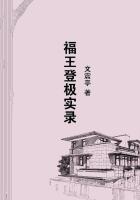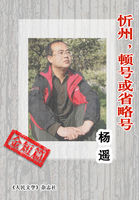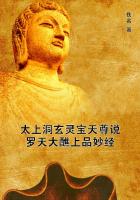"...I have received your note with a bag of socks. I return the bag and receipt. The count is all right this time. I have put in the bag General Scott's autobiography, which I thought you might like to read. The General, of course, stands out prominently, and does not hide his light under a bushel, but he appears the bold, sagacious, truthful man that he is. I inclose a note from little Agnes. I shall be very glad to see her to-morrow, but cannot recommend pleasure trips now...."
On April 1st the Battle of Five Forks was fought, where about fifty thousand infantry and cavalry--more men than were in our entire army--attacked our extreme right and turned it, so that, to save our communications, we had to abandon our lines at Petersburg, giving up that city and Richmond. Form that time to April 9th the Army of Northern Virginia struggled to get back to some position where it could concentrate its forces and make a stand; but the whole world knows of that six-days' retreat. I shall not attempt to describe it in detail--indeed, I could not if I would, for I was not present all the time--but will quote from those who have made it a study and who are far better fitted to record it than I am. General Early, in his address at Lexington, Virginia, January 19, 1872--General Lee's birthday--eloquently and briefly describes these six days as follows:
"...The retreat from the lines of Richmond and Petersburg began in the early days of April, and the remnant of the Army of Northern Virginia fell back, more than one hundred miles, before its overpowering antagonists, repeatedly presenting front to the latter and giving battle so as to check his progress. Finally, from mere exhaustion, less than eight thousand men with arms in their hands, of the noblest army that ever fought 'in the tide of time,' were surrendered at Appomattox to an army of 150,000 men; the sword of Robert E. Lee, without a blemish on it, was sheathed forever; and the flag, to which he had added such luster, was furled, to be, henceforth, embalmed in the affectionate remembrance of those who remained faithful during all our trials, and will do so to the end."
Colonel Archer Anderson, in his address at the unveiling of the Lee monument in Richmond, Virginia, May 29, 1890, speaking of the siege of Petersburg and of the surrender, utters these noble words:
"...Of the siege of Petersburg, I have only time to say that in it for nine months the Confederate commander displayed every art by which genius and courage can make good the lack of numbers and resources.
But the increasing misfortunes of the Confederate arms on other theatres of the war gradually cut off the supply of men and means. The Army of Northern Virginia ceased to be recruited, it ceased to be adequately fed. It lived for months on less than one-third rations. It was demoralised, not by the enemy in its front, but by the enemy in Georgia and the Carolinas. It dwindled to 35,000 men, holding a front of thirty-five miles; but over the enemy it still cast the shadow of its great name. Again and again, by a bold offensive, it arrested the Federal movement to fasten on its communications. At last, an irresistible concentration of forces broke through its long thin line of battle. Petersburg had to be abandoned. Richmond was evacuated.
Trains bearing supplies were intercepted, and a starving army, harassed for seven days by incessant attacks on rear and flank, found itself completely hemmed in by overwhelming masses. Nothing remained to it but its stainless honour, its unbroken courage. In those last solemn scenes, when strong men, losing all self-control, broke down and sobbed like children, Lee stood forth as great as in the days of victory and triumph. No disaster crushed his spirit, no extremity of danger ruffled his bearing. In the agony of dissolution now invading that proud army, which for four years had wrested victory from every peril, in that blackness of utter darkness, he preserved the serene lucidity of his mind. He looked the stubborn facts calmly in the face, and when no military resource remained, when he recognised the impossibility of making another march or fighting another battle, he bowed his head in submission to that Power which makes and unmakes nations. The surrender of the fragments of the Army of Northern Virginia closed the imperishable record of his military life...."
From the London "Standard," at the time of his last illness, I quote these words relative to this retreat:
"When the Army of Northern Virginia marched out of the lines around Petersburg and Richmond, it still numbered some twenty-six thousand men. After a retreat of six days, in the face of an overwhelming enemy, with a crushing artillery--a retreat impeded by constant fighting and harassed by countless hordes of cavalry--eight thousand were given up by the capitulation at Appomattox Court House. Brilliant as were General Lee's earlier triumphs, we believe that he gave higher proofs of genius in his last campaign, and that hardly any of his victories were so honourable to himself and his army as that of his six-days' retreat."
Swinton, in his "History of the Army of the Potomac," after justly praising its deeds, thus speaks of its great opponent, the Army of Northern Virginia:
"Nor can there fail to arise the image of that other army that was the adversary of the Army of the Potomac, and--who that once looked upon it can ever forget it?--that array of tattered uniforms and bright muskets--that body of incomparable infantry, the Army of Northern Virginia, which, for four years, carried the revolt on its bayonets, opposing a constant front to the mighty concentration of power brought against it; which, receiving terrible blows, did not fail to give the like, and which, vital in all its parts, died only with its annihilation."
General Long, in speaking of its hardships and struggles during the retreat, thus describes how the army looked up to their commander and trusted him to bring them through all their troubles:















